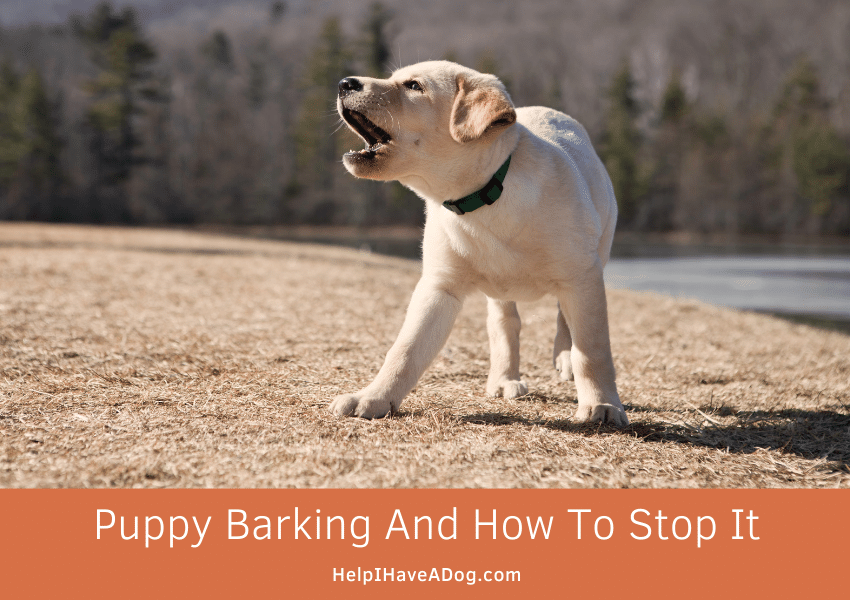If you’ve just got a new little canine friend then you may find you run into a few issues with excessive puppy barking.
If you do, it’s important you sort it out as soon as you can because barking dogs not only disturb your own peace and quiet, but that of your neighbors too. And constant puppy barking at night can cause you to have trouble sleeping. This in turn will sooner or later start to affect your work performance and your mood, causing you to be irritable with family, friends and colleagues.
Constant dog barking can also upset other pets and cause other dogs to start barking too.
It should be noted that while persistent or excessive barking is most often associated with the toy dog breeds and other small dogs, it’s not an issue that is just restricted to them.
Indeed, any particular dog, regardless of breed, can start to show such barking behavior if you’re not careful.
So just how to you go about training a puppy not to bark?
Well, it may sound obvious, but the key is to understand what is making them bark in the first place.
What Causes Excessive Puppy Barking?
Dogs may bark excessively for a number of reasons. Some of the most common are:
- To get their owner’s attention.
- To let their owner know that a stranger is approaching.
- Because they can hear other local dogs barking.
- Through sheer boredom or lack of something constructive to do.
- To let their owner know when they need to go outside to toilet.
- Because of separation anxiety.
- Through loneliness.
How to Stop A Puppy Barking?
The best way to stop a puppy from barking excessively depends on the reason why they’re barking in the first place. Here are a number of tips and ideas you can use…
If your puppy is warning you that someone is approaching, give them praise and thank them as soon as they first begin to bark. If they continue to bark after you praise them, order them to stop using a command such as, “No!” or “End!”. At the same time, give them something else to distract them, such as their favorite toy or a bone/chew.
Make sure you give your puppy plenty of your time and attention when they’re being peaceful and not barking. When they do start to bark to get your attention, try and ignore them until they have calmed down and stopped. And once they do stop, make sure you give them plenty of praise and maybe a treat.
In this way, they’ll eventually begin to make the connection between their being quiet and getting your attention and praise. And also the opposite too, of course – they’ll start to learn that barking doesn’t get these things.
Also ensure that your puppy gets plenty of exercise and enough attention and toys to stimulate them mentally.
Once you’ve taught them standard puppy commands and tricks, such as sitting, staying and fetching, you can move on to more advanced tricks and agility to keep both their minds and their bodies active.
It’s also important that you never shout at, or even worse hit, your puppy when they bark. Yes, it can be an extremely frustrating and annoying behavioral trait, but scolding your puppy will just be counter-productive. If your puppy is barking because they want to get your attention because you’re not interacting with them, they’ll see even your shouting as interest and this will just make them bark all the more. And of course, shouting at and striking your dog will do nothing for the relationship between you. All it will do is make your puppy scared of you.
With the right training strategies, a bit of patience, and a good attitude, you’ll probably find that you can soon put a stop to any excessive puppybarking.
And of course, this is great news for not only you and your friends and family, but your neighbors too!
And remember that dog behaviours can very soon become habits that are difficult to break, so it’s important that you begin work on stopping any excessive puppy barking as soon as you can.

